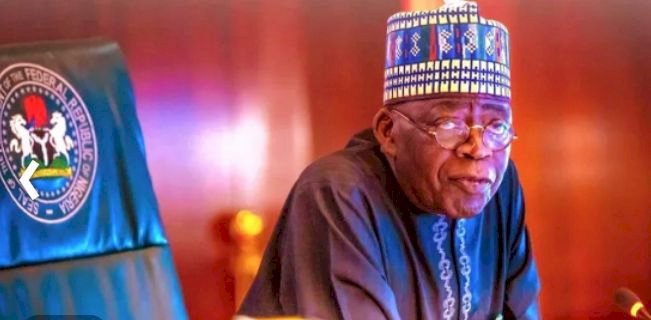Hardship: Daily petrol consumption drops by 92% under President Tinubu — Report

Daily consumption of Premium Motor Spirit (PMS) or petrol in Nigeria has dropped drastically under one year after President Bola Tinubu assumed office on May 29, 2023.
Data obtained by Channels Television from the Nigerian Midstream and Downstream Product Regulatory Authority (NMDPRA) Daily Truck Out Report, showed that consumption as of August 20, 2024, was 4.5 million litres per day.
The daily petrol consumption as of May 2023 was 60, 000 million litres per day, according to the NMDPRA.
An estimation brings daily consumption down by 92 per cent after May 29, 2023.
Analysis of the report, shockingly, revealed that out of the 36 states of the federation, only 16 states got product allocation from the Nigeran National Petroleum Company Limited (NNPCL) in the month under review.
This meant that those states that did not get product allocation suffered scarcity in August. A breakdown of how NNNPCL distributed the products among the 16 states, showed that Niger got the highest allocation of 21 trucks, amounting to 940, 000 litres daily, Lagos got the second highest of 12 trucks amounting to 726, 001 litres, and Kaduna got 12 trucks of 454, 001 litres
Other states such as Oyo got 12 trucks of 454 litres, Kano 9 trucks, Ondo 6 trucks, Kwara 6 trucks, Edo 4 trucks, and FCT 4 trucks. The likes of Sokoto state received 4 trucks from the NNPCL, Ogun state got three trucks, Osun three, Gombe one, Benue one, Ekiti one and Kebbi, one truck.
President Tinubu on May 29, 2023, declared an end to petrol subsidies, which at that time had gulped about N12tn in 10 years. According to the president, payment of petrol subsidies was no longer sustainable as it had plunged the country into huge debts.
It added, “Multiple shocks in a context of high economic insecurity Niger dan estimate to aened oper in 202. Sine 2018/19, an additional nearly 35 million people have fallen into poverty, so that more than half of Nigerians (51.1 per cent of the population in 2023) are now estimated to live in poverty.”
A related report by a foreign news medium, AFP, also detailed how Nigerians have since abandoned their cars as a result of the pounding hardship. “I parked it at my son’s house. I use public transport now,” Emmanuel, a 72-year-old retired health worker, told AFP. “It is not convenient, but it is what the economy demands.”
Car dealers in Lagos and Abuja told AFP that they had seen more and more people trading their fuel-guzzling cars and sports utility vehicles (SUVs) for more efficient vehicles to cut costs.
People are actually selling their big cars these days,” Maji Abubakar, a car dealer in Abuja, told AFP. “The problem is that even if you put them on the market, there isn’t much demand for them. It has been more than a year since I sold a car with an eight-cylinder engine, and the major reason is the price of petrol,” he added.



















